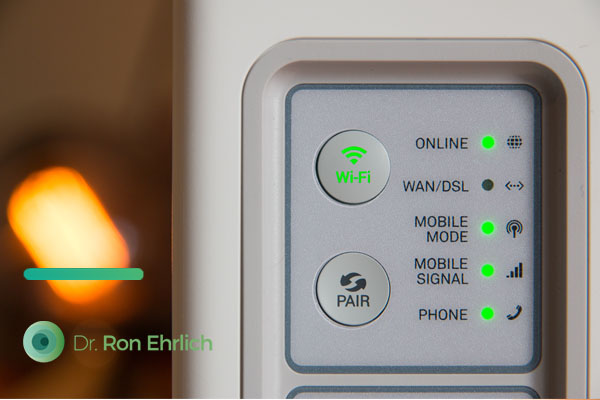Why You Need to Consider Your EMF Exposure

So often, when we face health challenges, we quickly look at medications we should be on, supplements we should take or dietary changes we should make. Something that we may not consider, though, is our physical environment. Many environmental elements can affect our health; I’ve explored some of these on my podcast Unstress. But I wanted to talk briefly about the impact of Electromagnetic Fields (EMF). Exposure to EMF is not a new phenomenon, but it is the amount of exposure and the consistency of it that can cause adverse health effects.
Why reduce your EMF exposure:
We need to look at the last decade and the increase in EMF sources. So many devices have wifi or Bluetooth capabilities that our exposure has escalated. Over 25,000 articles have been published discussing the biological effects of EMF exposure. The World Health Organisation has gone as far as to classify it as a carcinogen. Some symptoms of EMF sensitivity include a foggy brain, chronic fatigue, fibromyalgia, infertility and anxiety. While EMF may not be the only cause for these issues, it is essential to reduce exposure where possible. Despite this, the effects on individuals vary, and the conclusion is more research needs to be done. My belief is we should be exercising the precautionary principle. We all know how good we feel after a day in nature compared to a day in front of a computer, so why not take some simple steps to reduce exposure?
How to reduce your EMF exposure:
- Keep your phone in flight mode – there are only rare circumstances where we need to be contactable 24/7, so if you’re not in this situation, switch your phone to flight mode. This eliminates the constant stress of always being switched on and gives us control over when we can be contacted.
- Get an old-fashioned clock with batteries next to your bed. Radio clocks emit EMF and so should not be in the bedroom, let alone next to your head where most are
- Switch your wifi router off at night.
- Even better, have everything wired via Ethernet and don’t have wifi on at all.
- Opt for a cabled landline phone that isn’t cordless
- Educate yourself on your primary sources of exposure and reduce or eliminate
Want to learn more?
On my podcast, Unstress, I’ve had several amazing guests on to discuss the impact of our environment on our health. Lyn McLean has been on to talk about wireless technology in the home and Dr Pri Bandara’s impact on our health. The best way to know if EMF is a problem is to test. You can do this with the support of a Building Biologist or with a handheld EMF detector.
